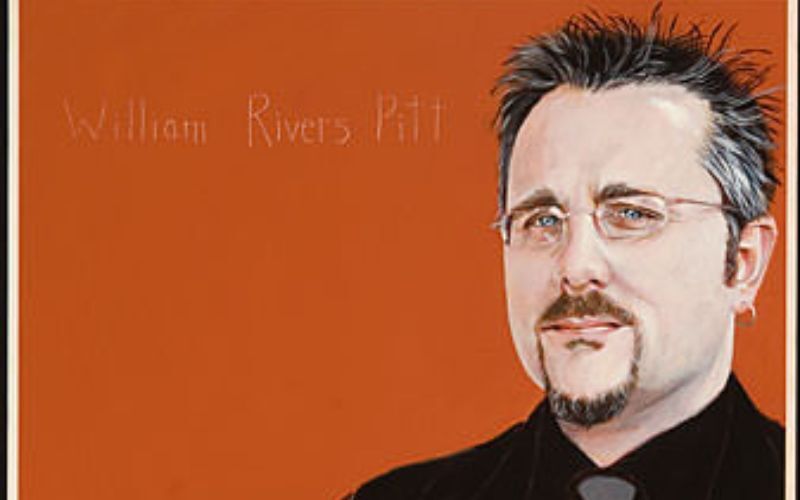Writer, educator, journalist (1971- )
Why so much war? Because war is a profitable enterprise. George W. Bush and his people can hold forth about the wonders of democracy and peace, and can condemn worldwide violence in solemn tones. Until the United States stops being the world's largest arms dealer, these words from our government absolutely reek of hypocrisy.
Biography
Pitt was born in Washington, D.C., and lived several years in Alabama (where his father, Charles Redding Pitt, served as chair of the state Democratic Party) before eventually moving to Boston. He was educated in English literature at Holy Cross College, a Catholic college in Massachusetts, and after graduation spent two years in San Francisco doing law-related work. Formerly, Pitt taught English literature, journalism, grammar and history at a small private school outside Boston. He set aside teaching in 2003 and became a full-time professional writer.
Pitt had been writing about politics off and on for several years, but became devoted to the practice during the impeachment trial of former President Bill Clinton. Since President George W. Bush took office on January 20, 2001, Pitt has worked to fight what he describes as "the rising tide of conservative fundamentalism in American government".
In 2002, Pitt wrote the book War on Iraq: What Team Bush Doesn't Want You to Know which consisted of an in-depth interview with former United Nations weapons inspector Scott Ritter. In it, Pitt and Ritter examine the Bush administration's justifications for war with Iraq and call for a diplomatic solution instead of war. In reviewing this book, The Guardian called it "the most comprehensive independent analysis of the state of knowledge about Iraq's weapons programs until the new team of inspectors went back."
Pitt has worked as the managing editor at the liberal commentary website Truth Out.
In January 2004, Pitt took over for David Swanson as the Press Secretary for Dennis Kucinich, who was seeking the Democratic Party's nomination in the 2004 presidential election.
Following his involvement in the Kucinich campaign, Pitt decided to push his career in teaching to the side in order to focus on political activism. As a result, he joined the staff of Progressive Democrats of America in 2005 as their Editorial director.


